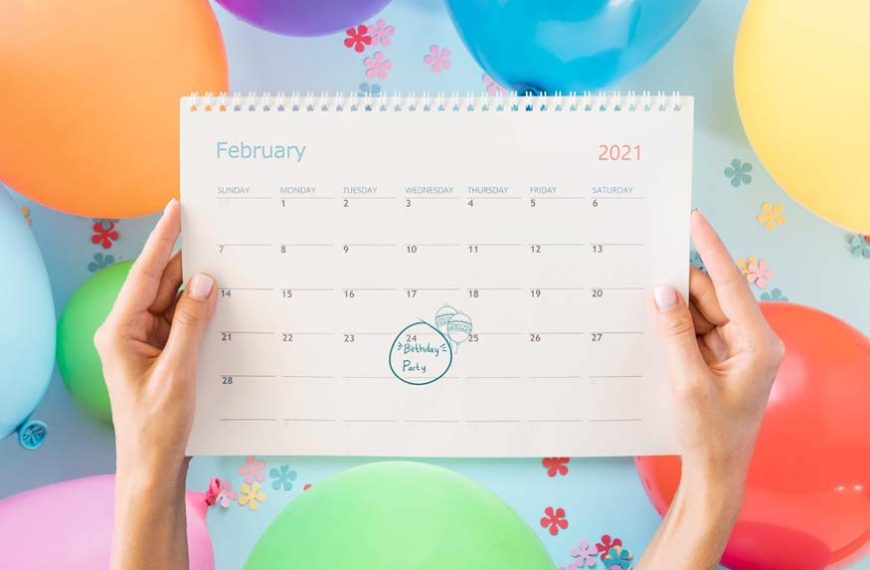Students’ educational progress must include teaching calendar skills to them. These talents help pupils understand time, develop organisation, and improve their general time management skills. They go beyond only comprehending dates. Teachers may provide the groundwork for lifelong abilities that go beyond the classroom by including students in dynamic and interactive calendar activities. In this blog, we will look at a variety of cutting-edge methods for teaching calendar skills, such as how to teach calendar skills to young students, offering engaging calendar activities for students, and including kid-friendly calendar suggestions. Let’s explore these fascinating techniques, which have the potential to revolutionise how pupils understand and relate to the idea of time.
5 Interesting Ways of Teaching Calendar to Kindergarten Kids
Consistency is essential while imparting calendar expertise in the classroom. These ideas must be repeatedly presented to students for retention. Use routines and activities to keep children interested, just as with any skill that needs practice.
Did you know that there are 5 ways of teaching a calendar to kindergarten kids?
- Use Your Own Calendar
- Create a Calendar Routine
- Use Songs and Rhymes
- Make It Meaningful
- Create Monthly Calendars
Little ones imitate what they observe! It’s beneficial for them to witness you utilising a calendar if you would like them to be interested. This extends beyond your bulletin board’s student calendar! For your workstation, choose a calendar with entertaining images. This demonstrates to your kids that a calendar is an instrument you can use at any time, not only during calendar time. Additionally, you may let your kids enjoy themselves by turning the calendar to the subsequent month. A calendar cover reveal is always fun!
“Accomplishing this could be as easy as putting up a colour-coded calendar, or you might have to take it a step further and have your kids fill out permission slips to return to you to attend a certain event or participate in an extracurricular activity.”
Howstuffworks
You must directly teach the days of the week as well as the months of the year to your children in addition to getting them interested in learning about the calendar. Building a calendar habit is a fun method to do this. You can check the date, the day of the week, the number of days till an event, and other information during this period. Learners are more likely to comprehend the passing of time when these dialogues occur daily. As students take part in regular calendar practice, they will have the opportunity to pick up useful calendar vocabulary.
Did you know that teaching a calendar to kindergarten kids can be both fun and educational?
Songs and rhymes are a crucial tool for teaching kids vocabulary and concepts about the calendar. With the aid of music, kids may better grasp topics, memorise language, and even place things in the right sequence. Calendar songs are really beneficial for this reason. Students may learn the sequence as well as practise reciting the days and months. Teachers are aware of how challenging it may be to select the top calendar songs for kindergarten because so many are available.
The first step is to learn the names of the days along with months by heart. Students just repeat a bunch of words from a popular tune if they don’t grasp these terms. Making the calendar relevant for children is the next stage in teaching how to prepare the calendar to young students. There are several options on how to accomplish this! To start, you might draw attention to the aspects of the daily schedule at school that are specific to each day of the week. Students may also use this to grasp the weekly calendar’s structure. Talking about occasions that are particular to them gives kids another chance to relate the calendar to their lives.
Finally, having children design their own calendars is a fun method to encourage them to develop connections with them. You can have kids make their own calendars using a blank template as part of your weekly practise. Students can indicate noteworthy days in the month by circling them after filling in the numbers on the calendar. You may add a seasonal project and hang each calendar page on a lengthy sheet of paper to make it even more entertaining! With the proper number construction, students may practise writing numbers in sequence. As they outline or write the month’s name at the summit of the calendar, they may also practise letter formation.
5 Fun Calendar Making Activities for Students: Engaging and Interactive Learning
The key to advancing students’ comprehension and mastery of calendar abilities is to involve them in interactive calendar activities. Here are a few innovative techniques that may be used in the classroom:
- Calendar Maths
- Memory Games
- Calendar Journals
- Calendar Collages
- Interactive Online Tools
Calendar maths is one of the educational and amusing calendar making activities for kids. Create a transdisciplinary learning environment by fusing mathematical ideas with time management expertise. Students can use the calendar to forecast outcomes, detect trends, and solve time-related issues. For instance, students can figure out how many days separate two dates, determine who has a birthday in a certain month, or examine patterns in seasonal changes.
Playing memory games with a calendar theme will improve your memory and cognitive abilities. Give children the task of accurately matching pairs of cards that each indicate a date. The sequential arrangement of dates is reinforced while memory retention is improved. Memory games are one of the excellent calendar activities for kids.
Calendar journals are one of the fun calendar making activities for kids. Students should be encouraged to keep their own calendar journals. Give them blank calendars and tell them to mark significant occasions, due dates, and deadlines. They can also take stock of their day’s events and record them in a personal journal, which will help them better appreciate the passage of time.
Calendar collages are a great way to get students’ creative juices flowing. Give them periodicals, newspapers, and art tools, and instruct them to make a picture representing a certain month or season. Through visual interpretation, this practice teaches the idea of time while fostering creativity and self-expression. It is also one of the best calendar picture ideas for kids.
For you: Enrol your child in India’s leading preschool network
Use internet tools like countdown clocks, virtual scheduling tools, and interactive calendars. In addition to improving students’ digital literacy, these technologies help make learning calendar skills more enjoyable and approachable. Interactive online tools on the internet are one of the best sources of calendar making ideas for kids.
4 Calendar Making Ideas for Kids: Nurturing a Lifelong Love for Organization
- Morning Routines
- Weather Calendar
- Holiday Countdowns
- Classroom Event Planner
Utilise a calendar to display morning habits visually. Students can arrange symbols or stickers to represent each phase of their morning routine, such as waking up, cleaning their teeth, and having breakfast. Because of this, Young learners benefit from a better understanding of organisation and timing.
Introduce weather-related calendar activities so that kids may record the daily weather and discover seasonal variations. Include talks about weather patterns and how they affect day-to-day activities to promote scientific inquiry and calendar skills.
By including holiday countdowns, engage kids’ excitement. The children will eagerly anticipate the approach of a significant holiday or event as they mark off each day on a giant calendar. Their comprehension of the passing of time is improved by this activity, which also increases enthusiasm and anticipation.
Give students the responsibility of organising classroom activities. Please give them a calendar and encourage them to plan and keep track of important events like field trips, special guests, or class celebrations. Students gain self-confidence, organisational abilities, and a sense of collaboration.
Conclusion
Calendar organisation is essential in children to schedule their time and days to efficiently learn new skills. In this article, we have covered the importance of calendar organisation for your kids. We have also provided you with 5 interesting ways of calendar making ideas for kids, 5 fun calendar making activities, and 4 additional calendar making ideas for kids. We have also provided calendar drawing and picture ideas to unleash your child’s creative and organisational skills. Do you have more interesting ideas to share? Please leave your valuable feedback in the comments section below.
For informative and accurate articles on all things related to your new born-toddler’s development, growth, health and nutrition, follow EuroKids Blogs and do check out our nationally recognized preschools – EuroKids for the first step in your kid’s educational journey!
















